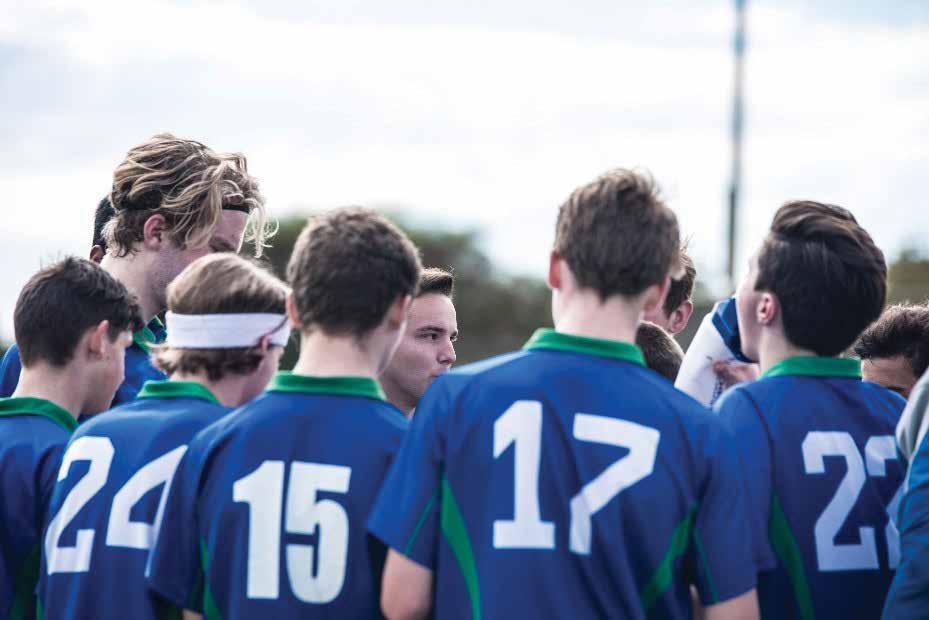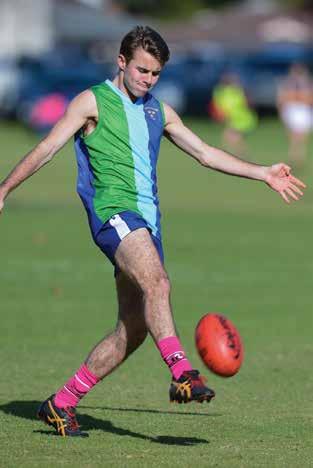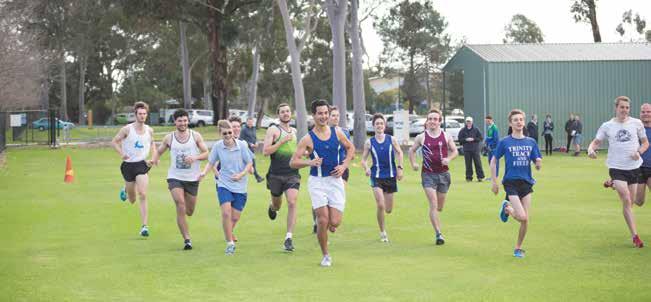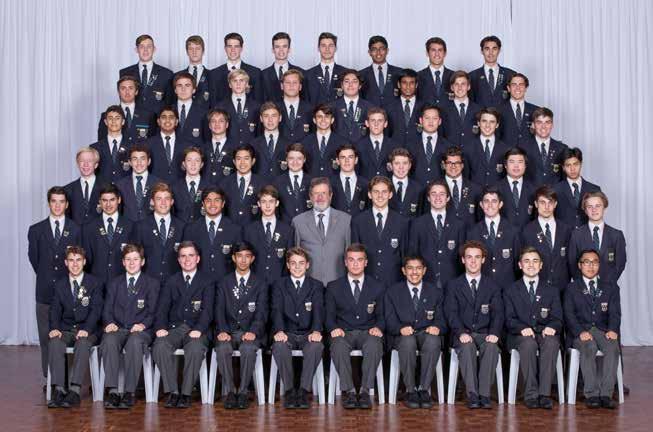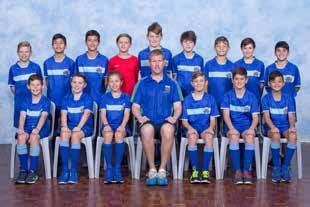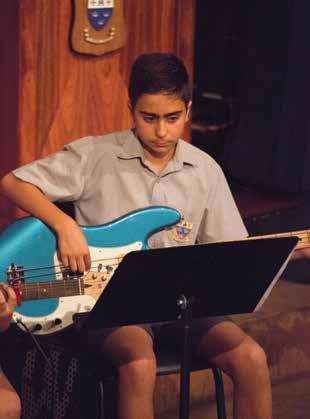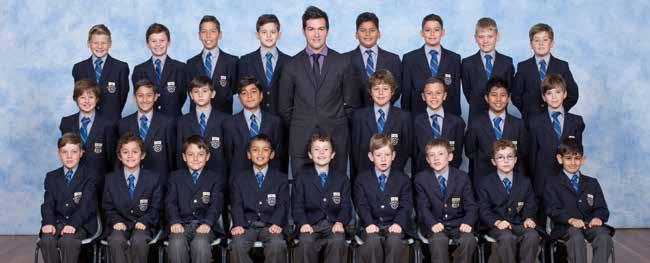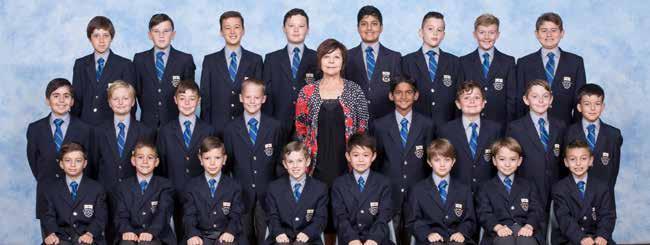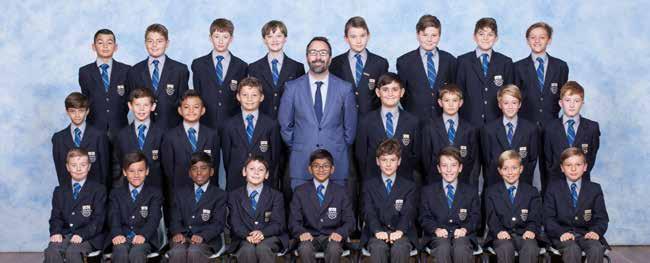Kimberley Immersion The Kimberley Immersion provided an opportunity for 12 of our Year 11 students to have a variety of challenging and heart-warming experiences with the Indigenous people of the Kimberley. These trips often change the mindsets of the participants, on the lives of Aboriginal people and enhances their understanding of the culture and traditions of these remarkable people. This year the Immersion participants were Tennessee Buti (11.3), Matthew D’Souza (11.2), Ashton Godfrey (11.7), Alex Hammond (11.1), Ethan Hansen (11.4), Samuel Henley (11.5), Zachary Hooper (11.6), Daniel MacMillan (11.7), Ben McGuire (11.6), Samuel Moffatt (11.3), Luke Scarfone (11.8) and Bradley Skajko (11.8) accompanied by Mr David Allen, Mr Michael Murphy and Mrs Marya Stewart. “Being a part of the athletics team, going on the cricket tour and going on the Year 11 OED camp to Dampier are all experiences that will stick with me but the 2016 Kimberley Immersion will be in my heart for the rest of my life. Over the duration of our trip, we based ourselves in Broome and broke into three groups traveling to Bidyadanga, One Arm Point and Wyndham. For all the students and staff who attended, the highlight was spending six days in the communities. We worked in local schools with the kids and spent time with the local rangers. The highlight for me was travelling out to Nita Downs Station with the Karajarri rangers. We learnt about land management and life and traditions and culture of the Aboriginal people. On our return to Broome we spent time working with Goolarri Media and worked with an organisation called Feed the little Children, where we delivered food to houses where kids struggle to be fed. We spent time with Jesse and Leroy Pigram and they took us all out to Crab Creek where we spent the morning fishing.” Luke Scarfone “I had the privilege of travelling to the tip of the Dampier Peninsula to One Arm Point with Brad Skajko, Ben McGuire and Matt D’Sousa. One Arm Point is a small Indigenous community with a population of around 350 people. Arriving in the town we began questioning what we were there for
after seeing 20 stray dogs and four children before seeing any adults. We did a variety of things such as playing basketball with the kids, working in the classroom and having a chat to the locals about the way in which they live their lives. The kids were enthusiastic to show off their skills and make us look like we had never touched a basketball before. We spent our afternoons enjoying the beaches and swimming spots around the community. It was wonderful to see the great pride in which the local Bardi people have for their land and their willingness to share it with us. After returning from the creek owned by local gardener and head of the Land Council, Peter Hunter, we told him how we were so grateful and impressed with the landscape we had seen. He simply replied, “boys, that’s my backyard”. My experiences have shown me just how important the land is for the Indigenous people and why it is so important for us to respect the culture and way of life of Indigenous people. The Kimberley Immersion program allowed me to appreciate the things I have here at Trinity even more.” Samuel Henley “I was lucky enough to spend 19 days with 11 other boys from my year group, to go to the Kimberley and learn and experience things about Aboriginal culture that we will all remember for the rest of our lives. I’m Indigenous myself and know a lot about my culture but it was the culture up there that was different. I learnt that these Indigenous people hunt in the same way that they have been for thousands of years. They value respecting their elders and when non-indigenous people want to learn about their culture they invite them in and welcome them to their land. The number one thing I learnt in my immersion experience was that no matter what circumstance you live in you can have a future with whatever you choose, be happy and enjoy life. We as people who are more fortunate than others are given things like a good education, food, clothes, water and somewhere to sleep at night. We need to appreciate what we have and what our parents do for us. Feeding the less fortunate Indigenous children in Broome by giving them a small meal and something to drink made me
appreciate this. Their “thankyous”, the chance to put a smile on their faces and the way they showed their appreciation for what we were doing for them, makes me cherish this experience for the rest of my life.” Benjamin McGuire “Kimberly Immersion was a once in a lifetime experience that I gained a lot from and thoroughly enjoyed. In the first week, I visited One Arm Point with Ben McGuire, Brad Skajko, Sam Henley and Mr Allen. It was a bumpy, long and enjoyable ride from Broome that was certainly one to remember. It took us a while to settle in to the school in One Arm Point, but after a couple days it felt like home as we had made strong connections with a lot of the kids and staff members and one child in particular. He was a shy kid and didn’t like talking, having experienced a traumatic childhood. After a while he became fond of us and we all really connected with him, participating in numerous activities such as kicking the footy around and playing basketball. Overall, the people of One Arm Point were intelligent, kind and very welcoming. We went to a secret fishing spot, where only a few are allowed to go. Peter Hunter, an Elder of the community, allowed us to have this experience, even though he barely knew us. This feeling of acceptance and welcoming was something we experienced for the whole immersion. Wherever we went we were welcomed like family. Talking to the students and to their Indigenous teachers, we became aware of how proud they are of the Aboriginal culture and how willing they are to share it with us. I am very grateful to have gone on such a fulfilling and unique experience.” Matthew D’Souza “The 2016 Kimberly Immersion was one of the most rewarding experiences of my life. Zachary Hopper, Tennessee Buti, Ashton Godfrey, Mrs Stewart and I travelled to Wyndham—2,210 kilometres north of Perth, where we spent five days working at St Joseph’s School. We began the first day of school waking early to be greeted by the eager students willing to play before the school bell rang. I was placed with the Year 3/4 class for the week. During
133









